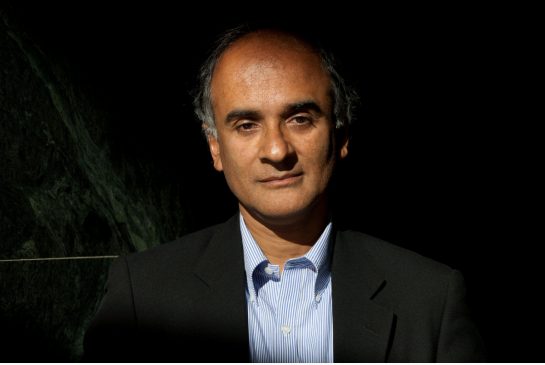LONG A FAN of travel writer Pico Iyer, especially of his poignant essay Why We Travel, I’d never seen him speak before. And he speaks just the way he writes; or maybe it’s the other way around. In any case, he has that ability to transport the listener (and reader) to a far-off place with his flowing and concrete descriptions of setting, though the details presented are often mundane. Perhaps this is what makes him the perfect person to discuss the notion of home, because of his skill in making everything he talks about sound like home.

In the talk above, Pico — who is of Indian descent, grew up in the UK, immigrated to the US, and lives part-time in Japan — talks about a population that is rarely discussed. The people of the world who live in a different country than where they were born. According to him, the population of this invisible nation numbers around 220 million, which would make it the fifth largest “nation” in the world. In the past 12 years alone, this number has grown by 64 million and will soon surpass the population of the United States.
The spiritual nature of this talk resonated with me. As Pico says, the notion of home has less to do with soil than it has to do with soul. He talks of the need for stillness to be able to listen to yourself and find your home, amidst the constant movement.
Movement is a fantastic privilege, and it allows us to do so much that our grandparents could never have dreamed of doing. But movement, ultimately, only has a meaning if you have a home to go back to.
Put another way, movement has no meaning without stillness, just as an object can’t exist without all the other objects that help to define it. Besides home being a physical location, it is also found in the quietness we can cultivate in ourselves by periodically turning off our electronic gadgets and disengaging from the “noisy” society in which we live.
Where is your home?